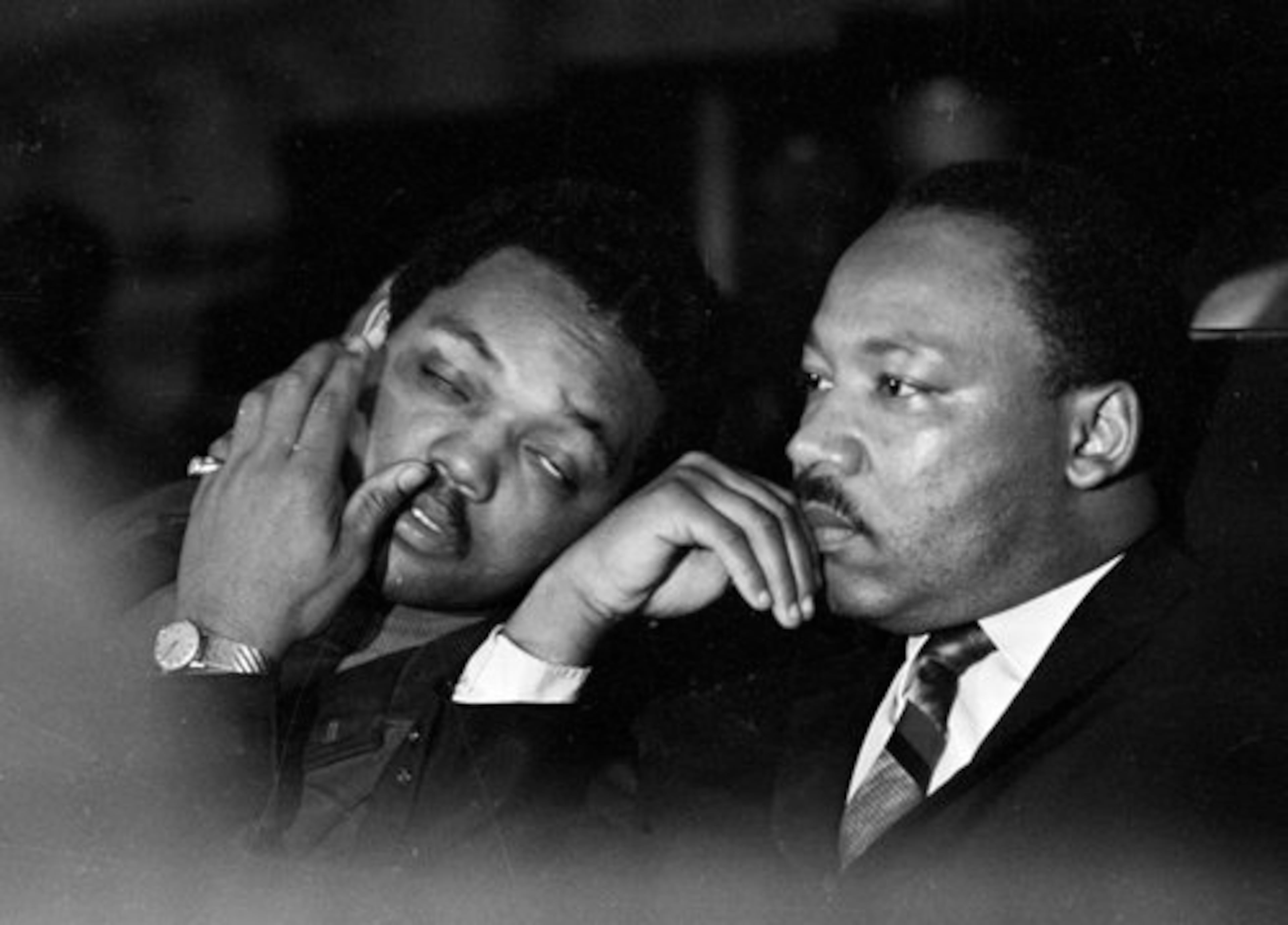‘Like pulling a scab off the sore’
The Rev. Jesse Jackson and Andrew Young found themselves in familiar but painful territory this weekend — the balcony of the Lorraine Motel.
It has been nearly 50 years – April 4, 1968 – since the two of them stood on that balcony above the prone body of Martin Luther King Jr., pointing in the direction they thought the bullet had come.
» AJC/WSB special: Honoring Dr. Martin Luther King Jr.
“Every time I go to Memphis and go to the balcony, it is always like pulling a scab off the sore,” said Jackson. “The wound is not healed. Fifty years later.”

Jackson and Young remain two of the dwindling number of witnesses who were with King that day.
Jackson, the founder and president of Rainbow/PUSH, was in Atlanta promoting a conference for his organization, before stopping by The Atlanta Journal-Constitution to do an AJC Sepia Facebook Live about the 50th anniversary of King's death and what comes next.
“In the last years of his life, Dr. King turned his attention to the plague of war, poverty and continued racial injustice,” Jackson said. “He understood that the war on poverty had been lost in the jungles of Vietnam.
“The civil rights movement had successfully eliminated legal segregation and won blacks the right to vote. Now it was time to turn to this unfinished business. We should not let the trauma of his death divorce us from the drama of his life, nor the riots that came in reaction to erase the agenda that he put forth for action.”

Jackson didn’t wear a tie to the meeting. Again, it was familiar. Moments before King’s death, he kidded Jackson for not having on a tie as they were on their way to someone’s home for dinner.
“I told him that you need an appetite to eat, not a shirt and tie,” Jackson said.
Moments later, King was shot.
“It was so instant,” Jackson said. “I think Dr. King was gone at that point.”
Jackson called King’s wife, Coretta Scott King and told her to “take the next thing smokin’.”
He also told her that King had been shot in the shoulder.
“I couldn’t really say what I had seen,” Jackson said.
Jackson said after King's death, those who were left were determined to "not let one bullet kill the movement."

“Many people who resented him as a marcher, raised him up as a martyr,” Jackson said. “They rejected him in flesh and blood, but now resurrect him in monument and stone.”
He said that has been manifested in the Black Lives Matter movement, as well as the March for our Lives, the recent surge of teen political activism following the Florida school shooting.
“Fifty years later, the idea of multiracial coalition, as opposed to racial nationalism, is true,” Jackson said. “You couldn’t have had the Olympics in Atlanta if we hadn’t a won. You couldn’t have the Falcons and Panthers. I couldn’t have run in ‘84. Barack Obama couldn’t have run if we hadn’t won. All of us have benefited from his work.”
The March 21 documentary 'The Last Days of Dr. Martin Luther King Jr.' on Channel 2 kicked off a countdown of remembrance across the combined platforms of Channel 2 and its partners, The Atlanta Journal-Constitution and WSB Radio.
The three Atlanta news sources will release comprehensive multi-platform content until April 9, the anniversary of King’s funeral.
On April 4, the 50th anniversary of Dr. King’s assassination, the three properties will devote extensive live coverage to the memorials in Atlanta, Memphis and around the country.
The project will present a living timeline in real time as it occurred on that day in 1968, right down to the time the fatal shot was fired that ended his life an hour later.
The project will culminate on April 9 with coverage of the special processional in Atlanta marking the path of Dr. King’s funeral, which was watched by the world.



